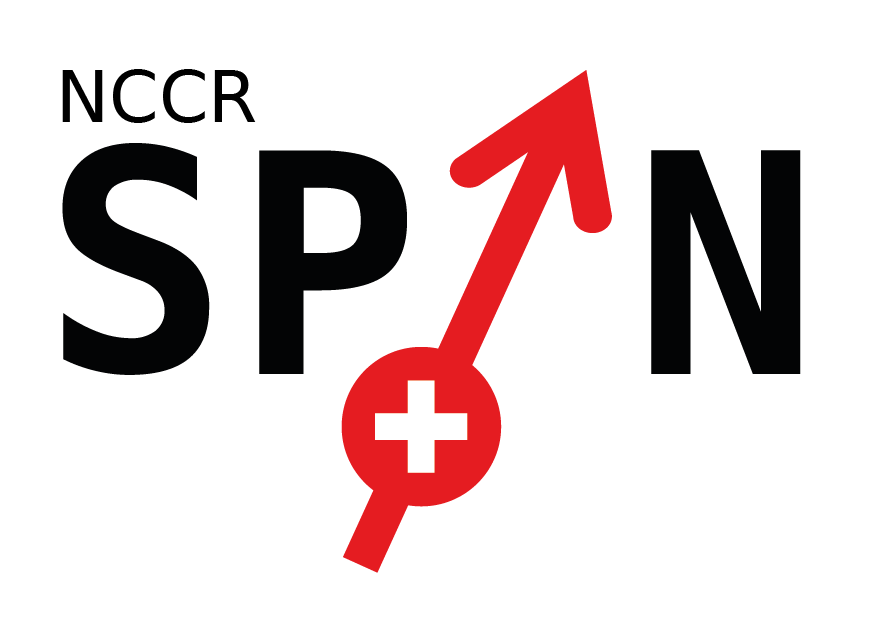Awardees of the 2024 SPINnovate Grants
The SPINnovate Innovation Seed Grants are an initiative of the NCCR SPIN to accelerate technology advancements and facilitate the transition from research breakthroughs to commercial success in quantum computing. In 2024, the Advanced Technology Grant and the Early-Stage Ideas Grant have been awarded to two pioneering teams: QanovaTech and The SQUID. These projects were selected for their innovative approaches, scientific merit, market potential, and strong team vision, aligning with our mission to accelerate advancements in quantum computing.
From left to right, standing: Simone Frasca, Marius Bild, Aleksandra Pac, Hon-Ming Yip
From left to right, sitting: Camille Roy, Antoine Silvin, Philippine Milward
The team behind Qanova Tech.
Advanced Technology Grant Awardee: QanovaTech
Funding: CHF 60,000
Quantum computing holds immense promise, but it also presents unique technical challenges, particularly in managing and interpreting the ultra-small signals critical to its operation. Existing amplifiers add noise and can be limited to specific frequency ranges – reducing the accuracy of the quantum calculations. Secondly, the intricate packaging required for quantum systems demands specialized engineering. As a result, researchers often spend a lot of time solving these engineering problems, instead of focusing on their experiments.
Qanova Tech’s goal is to address these issues by producing TWPAs (Traveling-Wave Parametric Amplifiers) which introduce the minimal amount of noise allowed by the laws of quantum physics, and developing multipurpose packaging solutions based on several years of experience in the field. This allows researchers to work with clearer, more precise signals. The amplifiers are also more versatile, functioning across a range of frequencies, making them suitable for many different experiments and setups. Qanova Tech’s aim is to allow effortless system integration to ensure researchers involved in the quantum race spend their time advancing quantum technology.
From left to right: Antonia Weber, Daniel Jetter, Timur Weber, the team behind THE SQUID
Early-Stage Ideas Grant Awardee: The SQUID
Funding: CHF 30,000
An important current challenge in the field of experimental quantum computation lies in making the transition from realizing few-qubit devices to scaled-up quantum processors comprising the large numbers of qubits required to run useful quantum algorithms and quantum simulations. For solid-state qubits, such as spin qubits or superconducting qubits, the success of this transition relies heavily on advances in the material aspects of the qubit platforms. Issues such as defect-related decoherence, qubit inhomogeneity, and spurious cross-talks, become excessively problematic for large qubit arrays. There is therefore a great need in characterizing and visualizing, as well as mitigating, the sources of these issues. Spatial characterization of local magnetic fields and field gradients, spurious currents, and hotspots of dissipation through scanning probe microscopy will therefore be an important tool in advancing quantum computation.
Most nanoscale magnetic imaging tools at low-temperatures are fragile and expensive or limited in their performance. The SQUID combines excellent tip-sample distance control with an extremely sensitive magnetic imaging sensor. The team recently managed to optimize fabrication and demonstrated the sensor’s magnetic sensitivity, spatial resolution, and robustness. In the next phase, they are going to further improve the imaging performance towards a market-ready state followed by the founding of a start-up. The company will provide sensors for high-performance magnetic imaging at low temperatures and allow for an increasing throughput of quality control studies of qubit devices and supporting elements.
Looking Ahead
We congratulate QanovaTech and The SQUID for their groundbreaking projects, which represent significant steps forward in quantum technology innovation. The funding will support these teams in 2025 in their next development phases, helping to translate their visionary concepts into impactful solutions for the quantum computing industry. Stay tuned for updates on their progress as they shape the future of quantum technologies!


